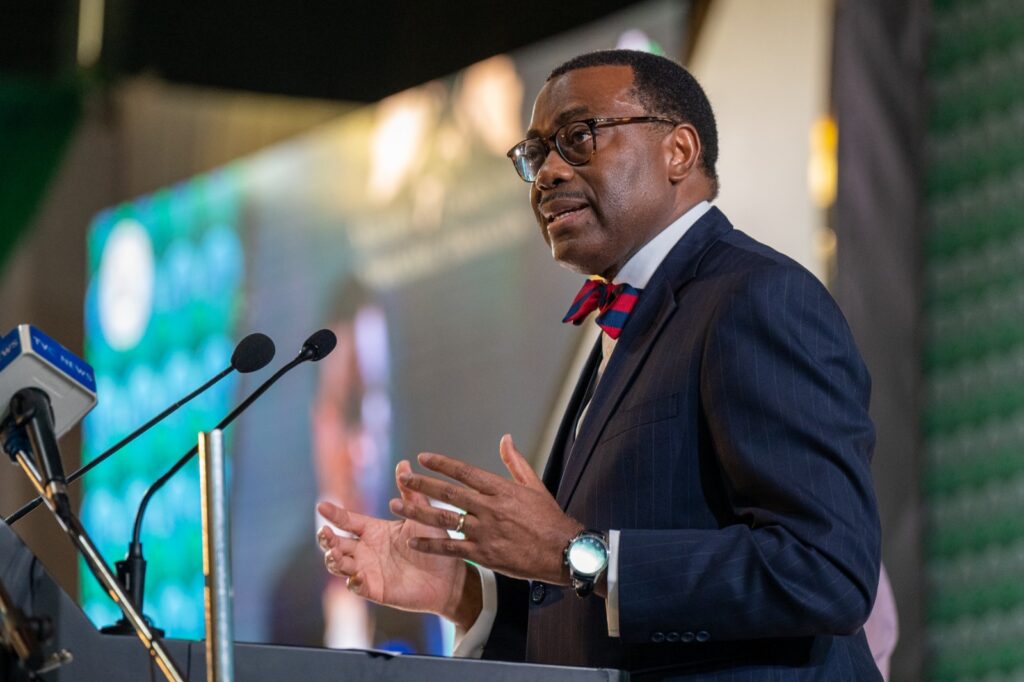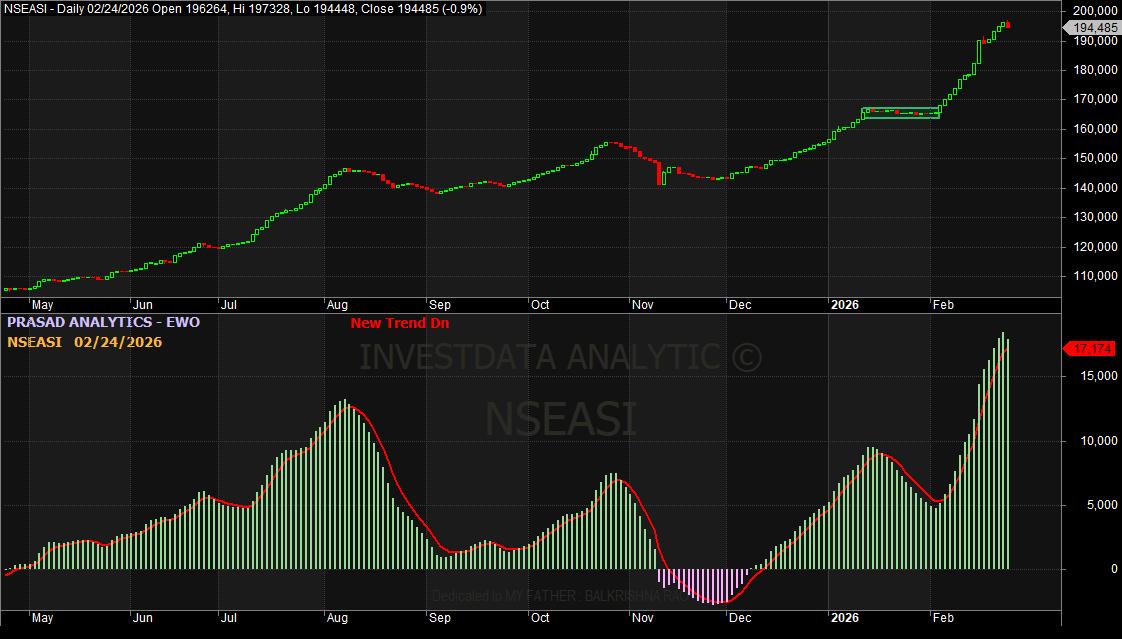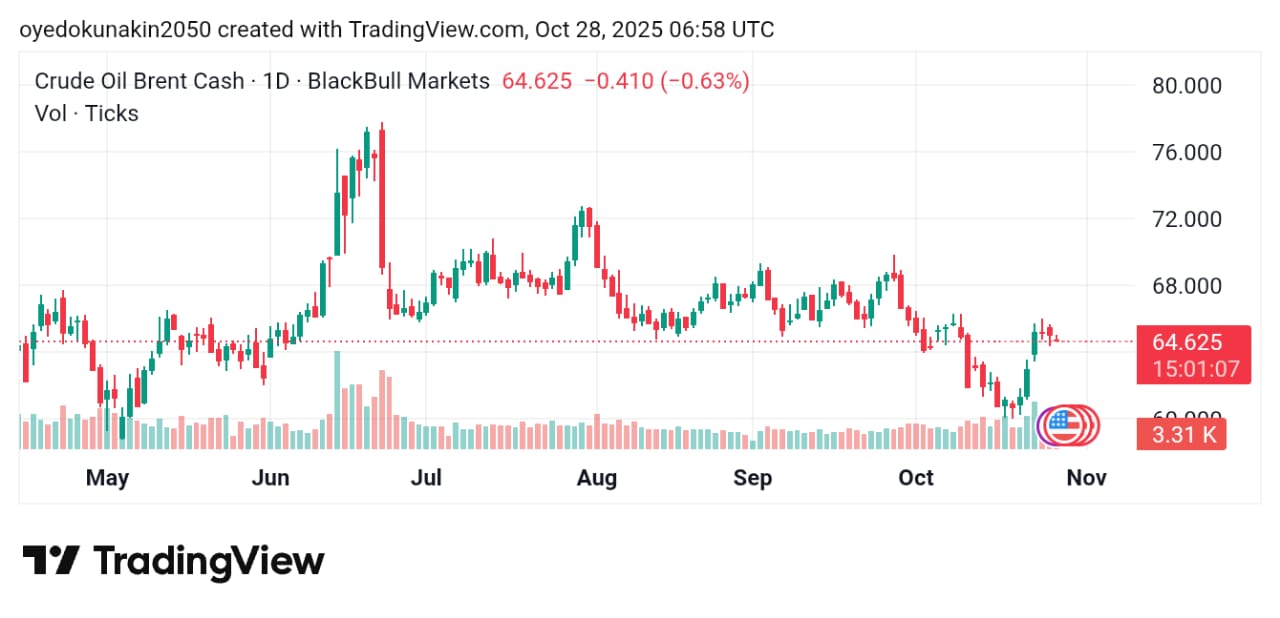
Dr. Akinwumi Adesina, President of the African Development Bank Group, says regional and continental economic and financial institutions must collaborate and ensure the African Continental Free Trade Area (AfCFTA), a market of 1.4bn consumers and a combined Gross Domestic Product of $3.4tr, achieve the desire of its founders and create value chains capable of changing Africa’s role as a provider of raw materials for the development of other countries.
Speaking at the meeting, titled “Mobilising capital for smart infrastructure and deeper integration,” the second of its kind organised by the AfDB on the sidelines of its Annual Meetings, which offered participants an opportunity to share their main concerns and discuss opportunities for cooperation, he said the group is committed to partnering with Africa’s regional and continental institutions to address the continent’s biggest development challenges.
Adesina, at the meeting with the heads of intergovernmental organisations and African development finance institutions on May 25, in Sharm el-Sheikh, Egypt, reminded them of the vital role African regional institutions play in promoting Africa’s political, economic, and social development and stressed that the continent needs to achieve double digit annual economic growth to eradicate poverty.
“We must ensure that Africa is at the heart of debates worldwide. Africa must have its rightful place in leading international bodies. But in addition to having a place, we also need resources,” he said.
The bank chief called on African regional organisations to partner individual countries to ensure that Africa benefits from the vast potential market for electric cars (estimated at $34tr) for example, pointing out that it would cost less to produce lithium-ion batteries in Africa than in the United States or China.
The regional institutions, and especially regional economic communities and regional banks welcomed AfDB’s investments and are calling for more inclusive projects similar to the Abidjan-Lagos Corridor Highway Development Project, the railway linking Tanzania, Burundi and the Democratic Republic of Congo, and the Kinshasa-Brazzaville Road-Rail Bridge Project, a few examples of projects the AfDB is financing, in the near term.
Albert M. Muchanga, African Union Commissioner for Trade and Industry, while outlining expectations for funding by specialised institutions, said the commission is “in the process of mobilising the private sector. We are working to set up the Association of African Stock Exchanges and, together with the African Development Bank we have launched a study of Africa’s development drivers, which will identify key actions needed to achieve economic growth of 7-10% by 2063.”
Arab Maghreb Union Secretary-General Taïeb Baccouche called for greater emphasis on young people to save them from the mirage of emigration, noting that an agropastoral project is now being rolled out to create more jobs for young people in the Maghreb.
Abolishing visas, he noted, would be a step forward for the proper functioning of the AfCFTA, while Elias M. Magosi, Executive Secretary of the Southern African Development Community (SADC), expressed concerns about infrastructure and in particular, energy infrastructure in the sub-region.
Peter Mathuki, Secretary-General of the East African Community, stressed the need to develop integrated railway networks and to strengthen public-private partnerships, just as Ms Ngakono Marie Thérèse Chantal Mfoula, Commissioner for Infrastructure at the Economic Community of Central African States, stressed that the region had made progress toward integration.
Omar Alieu Touray, President of the Economic Commission of West African States (ECOWAS) underscored the region’s fears over peace and security issues, applauding AfDB for supporting operationalisation of a regional early warning mechanism.
With a cumulative GDP of $662bn, the Common Market for Eastern and Southern Africa (COMESA), which includes both SADC and EAC countries, has identified more than 69 banking and multilateral institutions ready to invest in projects that will deepen integration, according to its Secretary-General Chileshe Kapwepwe.
Other themes discussed at the meeting included peace and regional security, health, food security and the debt burden that is an obstacle to Africa’s development.
AfDB, according to a statement, is promoting the establishment of an African Stability Mechanism to help the continent build a “cushion” of resources to counter external shocks. It will also continue to work through the Africa Investment Forum to mobilise the private sector in Africa and elsewhere in support of large-scale projects.
The Africa Investment Forum will hold its next Market Days in Marrakech, Morocco, in November.
Dr. Adesina concluded by saying that the private sector, the African diaspora, and African development finance institutions should assist in making the African Union financially autonomous. He promised Bank support for this aim.
“The hand that gives is greater than the hand that receives, and we need to work on mobilising individual savings in order to finance development,” said Serge Ékué, President of the West African Development Bank.
Marie-Laure Akin-Olugbade, the bank’s vice president for Regional Development, Integration and Service Delivery, expressed satisfaction with the discussions, noting the uniqueness of the meeting as it “gives us the opportunity to cooperate, exchange and explore ways to effectively channel resources, share best practices and coordinate our policies and advocacy in favour of Africa’s development and regional integration.”
Other participants included Hanan Morsy, Deputy Executive Secretary for the UN Economic Commission for Africa; Nardos Bekele-Thomas, CEO of the African Union Development Agency (AUDA-NEPAD); Alain Ebobissé, CEO of Africa50; Boitumelo Mosako, CEO of the Development Bank of Southern Africa (DBSA); Admassu Tadesse, president emeritus and group managing director of the Trade and Development Bank Group (TDB).











